What These "Thought Leaders" Really Think
Some people who have written books and even testified before Congress about independent contractors have deeply flawed views about us.
As I’m working on my own book about freelance busting, I’ve been reading through the category of books that continue to influence policy debates around self-employment.
My takeaway: Independent contractors have real cause for concern about some of the voices being given a seat at the policymaking table. A surprising number of these thought leaders are deeply misguided.
The first title I grabbed was Disrupting D.C.: The Rise of Uber and the Fall of the City by Katie J. Wells, Kafui Attoh and Declan Cullen (Princeton University Press, 2023). Dr. Wells came to my attention after she testified before Congress recently.
In an exchange with Rep. Kevin Kiley, R-Calif., Dr. Wells said that at least some independent contractors should be reclassified as employees against their will:
Her moral certitude in that testimony is palpable, and shocking, to say the least. Dr. Wells seems certain that the government should do the opposite of what most Americans in the gig economy have consistently said they want.
After reading her book, I now understand her thinking. Between her own words and serious questions that have since been raised about her research, I’m startled that she has any voice at all in the debate about independent-contractor policymaking.
Dr. Wells isn’t an expert in labor or employment law. She has a Ph.D. in geography. She arrives at the topic of independent contractors not based on any understanding of who most of us are or how we earn a living, but instead based on what the book describes as “Uber and the rapacious style of neoliberal capitalism that it represents.”
That seems to be her actual target as a researcher and author: capitalism.
In Disrupting D.C., Dr. Wells and her co-authors fully acknowledge that their research uncovered quite a lot of drivers, riders and policymakers who are just fine with Uber. This is the opposite of the authors’ personal views.
Most people writing a book would look in the mirror at that point and reconsider the angle they’re taking.
Instead, these authors shifted their book’s premise from “Isn’t Uber awful?” to “Why can’t people understand, as we do, that Uber is awful?”
If you apply that thinking to Dr. Wells’ appearance before Congress, then her testimony makes total sense. Independent contractors are simply too confused about capitalism being a problem to realize what’s in their own best interest, so government should force change upon them.
The Big Disconnect
She has to be a one-off, radical exception. That’s what went through my mind as I picked up a tall stack of other recently published “gig economy” books at my local library.
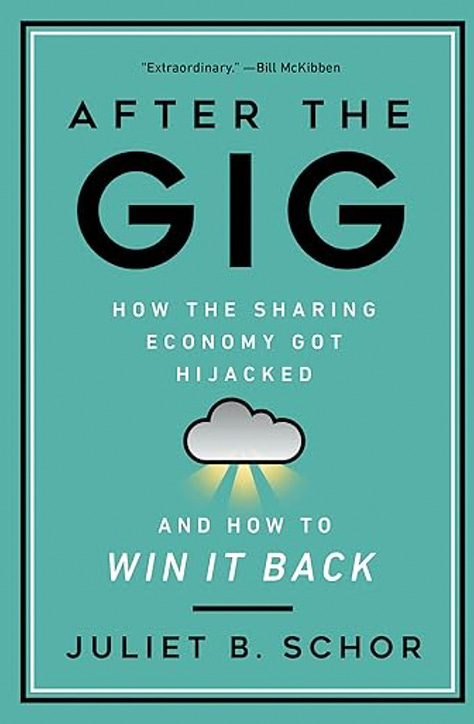
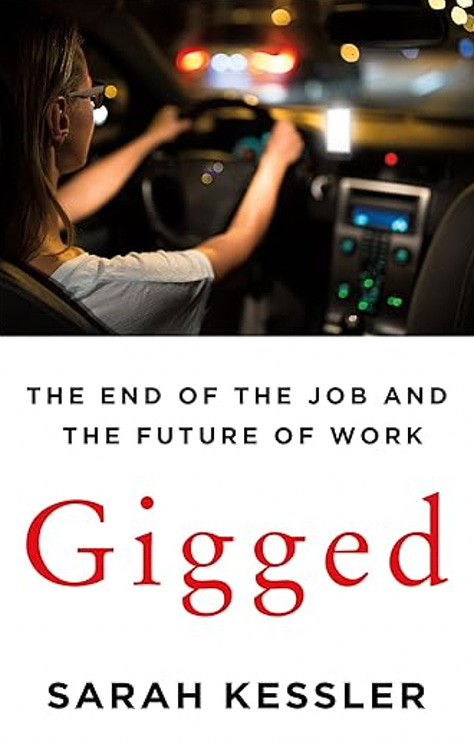
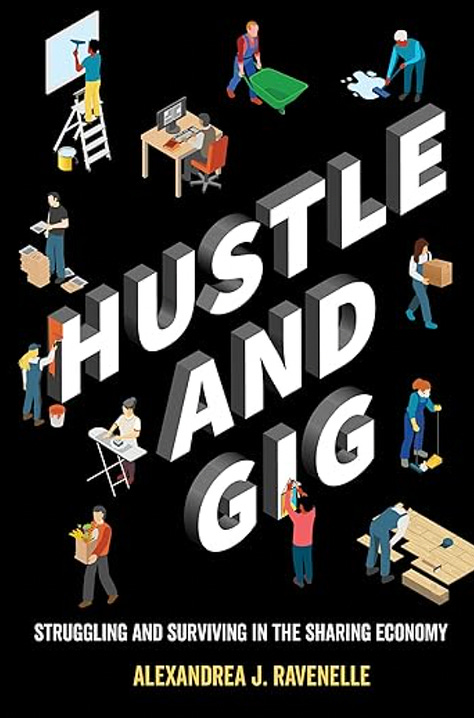
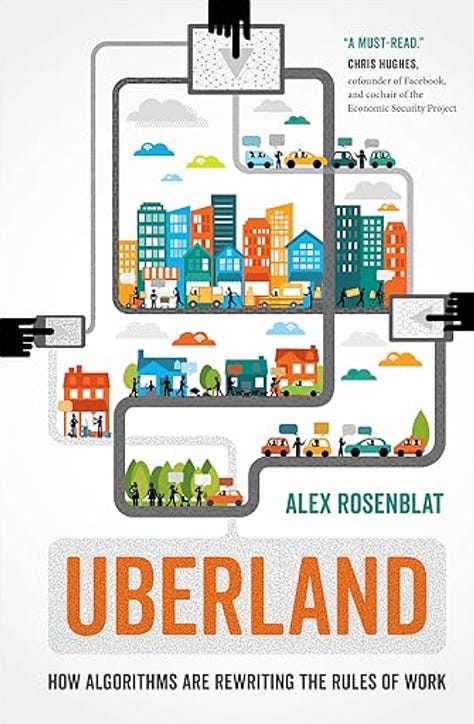
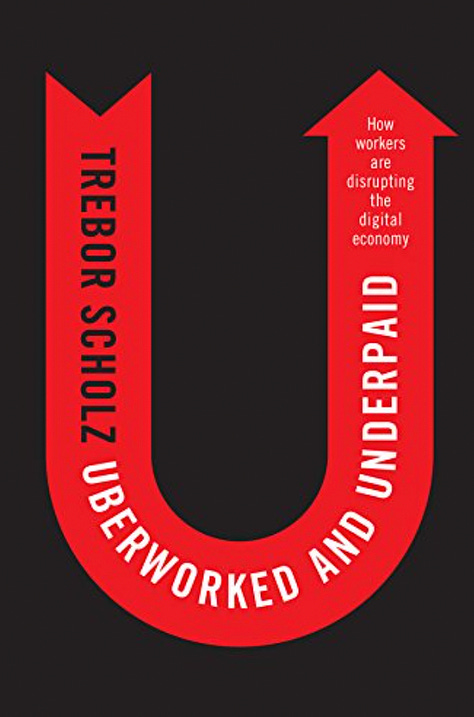
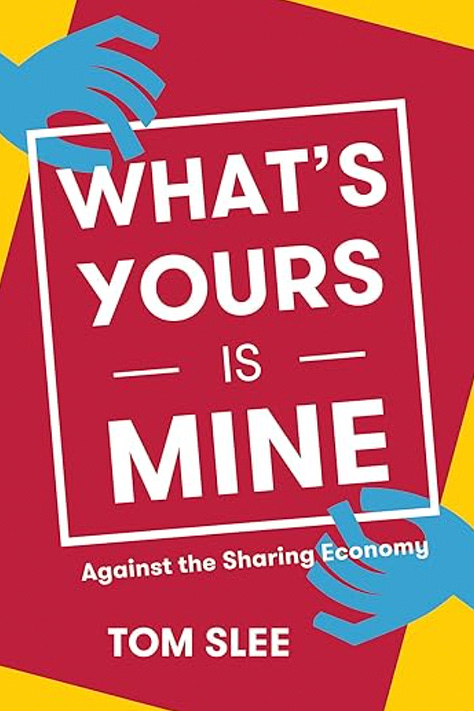
Boy, was I wrong. Several of these authors are just as fervent as Wells in their disdain for the independent-contractor business model and for capitalism in general, even when their own research about how independent contractors feel contradicts those beliefs.
In After the Gig, Juliet B. Schor writes about independent contractors in the language of victimization. She calls them “precarious laborers” who are being denied the “stable employment regime” that existed after World War II. Schor uses the word “Dickensian” to describe the “degradation of work”—even though, later on, she writes that people who only do occasional work for app-based platforms (which is the majority of app-based workers) “are a generally satisfied lot.” She adds: “The promise to remake work under capitalism is mostly coming true for them.”
In Uberland, Alex Rosenblat also uses the word “precarious” to describe independent contractors, whom she defines as victims as well: “largely excluded from the employment and labor law protections to which employees are entitled.” (As I’ve previously explained, this is an inappropriate way to define independent contractors.) Rosenblat’s description is a complete disconnect from what she writes later, that most Uber drivers “are not organizing for labor rights advocacy.” Unable to reconcile those competing ideas, she then insults the satisfied drivers, writing that they “function a bit like scabs.”
Trebor Scholz, in Uberworked and Underpaid, writes that he is building on the work of the revolutionary socialist Karl Marx. Scholz, too, finds that independent contractors are often happy with their choices—”Indeed, for the highly skilled, freelancing can be advantageous”—before later writing that those same freelancers would be better off as employees. “What we need today are employee-like rights for all,” he states, suggesting that regulators should “loosen the definition of employment to include the realities of twenty-first century labor.”
Alexandrea J. Ravenelle, in Hustle and Gig, breaks “gig workers” into three categories: strugglers, strivers and success stories. The latter two are occasional or regular workers—happily, in most cases. Even still, Ravenelle suggests that these independent contractors would be better off as employees. She writers that the reason self-employment has increased is not personal preference—which is what most independent contractors say—but instead corporate greed: “employers seek to avoid social responsibilities including workers’ compensation, overtime, and disability accommodations.”
The Real Story
The book I recommend from the bunch that I read is Gigged. Author Sarah Kessler’s findings are right in line with what virtually all the recent research shows.
The types of financially desperate people who are often held up as the reason we need widespread freelance-busting policies tend to have few marketable skills, minimal education (textbook or vocational) and, often, significant language barriers. Someone driving 60 or 70 hours a week for Uber because they see no other option in their life simply does not represent the majority of independent contractors in America.
Even so, Kessler writes, gig-company marketing often compares these struggling individuals to traditional entrepreneurs who choose to be their own bosses, or who choose to make some extra money on the side while already having a traditional job.
It’s a comparison that can set up false expectations and leave struggling people even worse off:
“When gig economy leaders had conveyed their visions early on, they had failed to distinguish between the experiences of people with relatively scarce skills—freelance graphic designers, journalists, movie production crews, programmers—and those with less scarce skills, like house cleaners and drivers … As a group, independent contractors earn more than employees who do similar work. Many of them … make six-figure salaries or more. But low-wage workers have historically been hurt rather than helped by the trend away from employees.”
I’m not sure that last bit is fully accurate, given how many of the “gig workers” these authors spoke with say they wish to remain independent contractors, but I am 100% sure that the freelance-busting policies we have been forced to battle in recent years do not pertain only to those people. They hit us all.
Freelance busting affects every type of independent contractor in the country. While the issues at play can be complex, the current policymaking is not. It has been one-size-fits-all, with the clearly stated intention of driving up unionization rates. It has been, as a writer in Los Angeles told The New York Times, “killing cockroaches with a cannon.”
This type of policymaking also fails to create, in any meaningful way, the types of post-World War II unionized jobs that these authors and policymakers believe should return. Instead, this policymaking decreases self-employment as well as overall employment.
Freelance busting hurts legitimate independent contractors. That’s its primary, documented effect.
Far more of us need to challenge this false narrative that so many “gig economy” thought leaders have been creating about us—to the point that they feel perfectly justified in telling Congress to eliminate rights that have existed since the day this nation was founded, against the will of most Americans who would be harmed.
The vast majority of America’s independent contractors wish to remain self-employed. Study after study shows this to be true.
Libraries should have entire shelves filled with our voices, as well, if only so that the lawmakers listening to these types of “thought leaders” will have something more accurate to read.





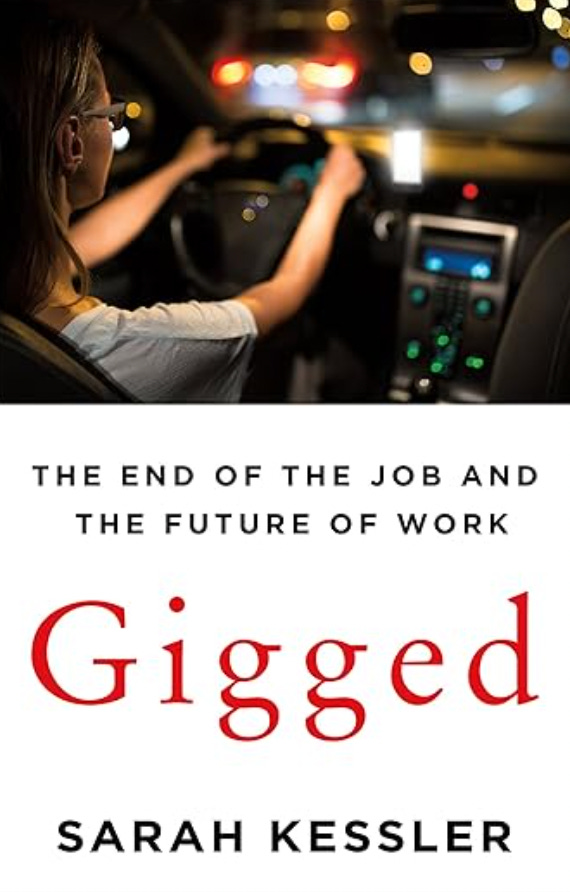
Thank you for your excellent research. I only wish those in power read this or listened to us at some point. Things are looking terrifying right now at both the federal and state levels.